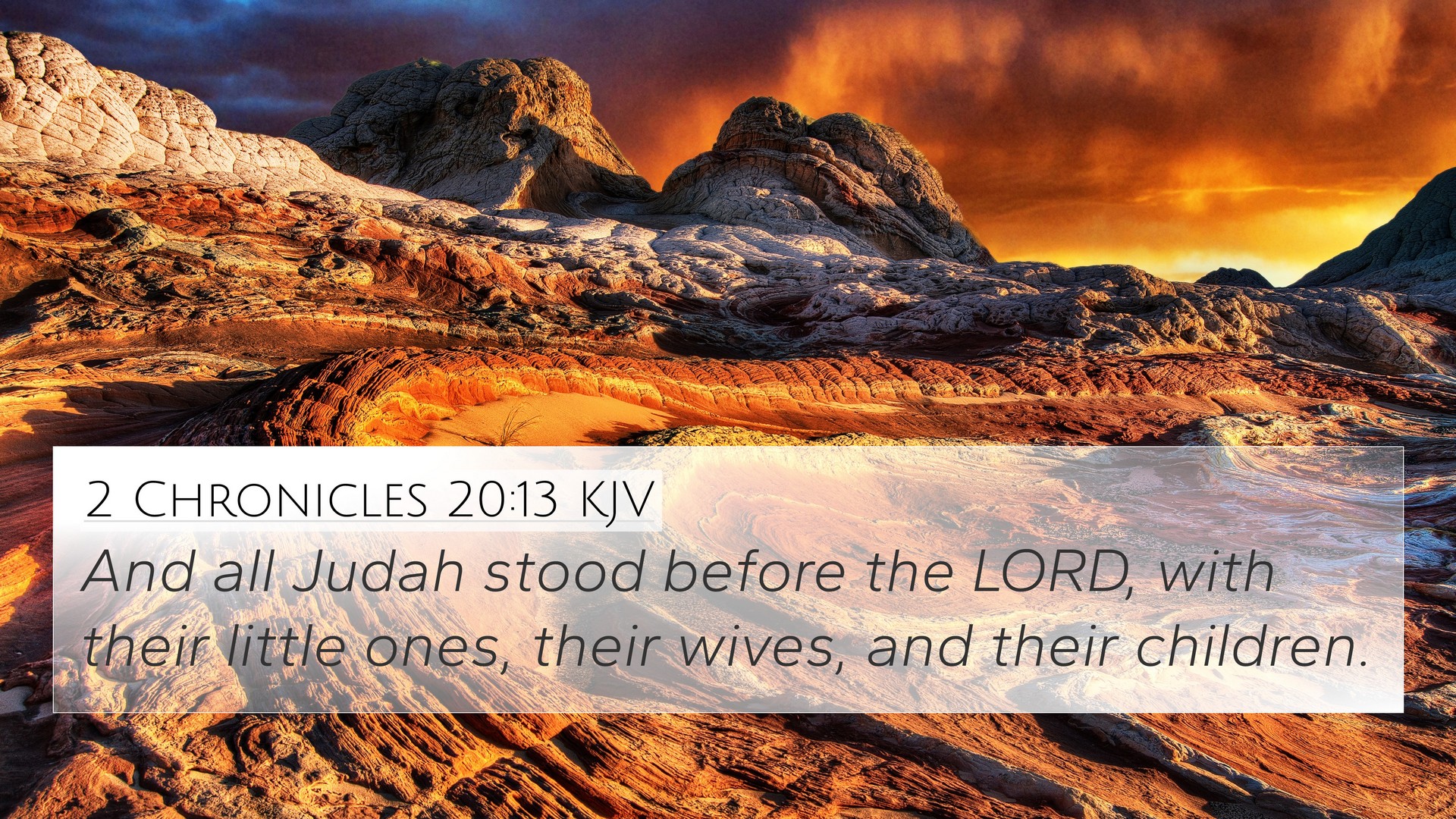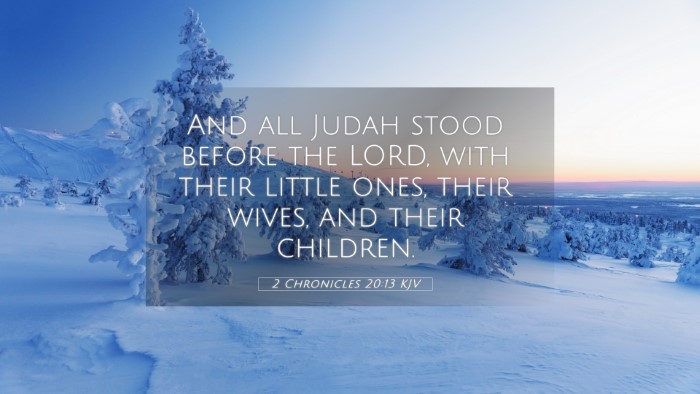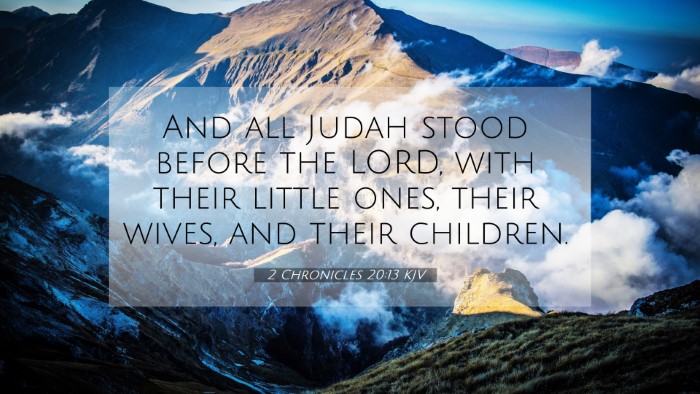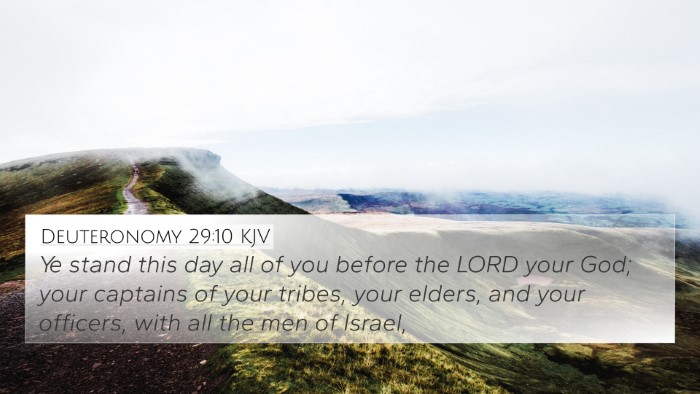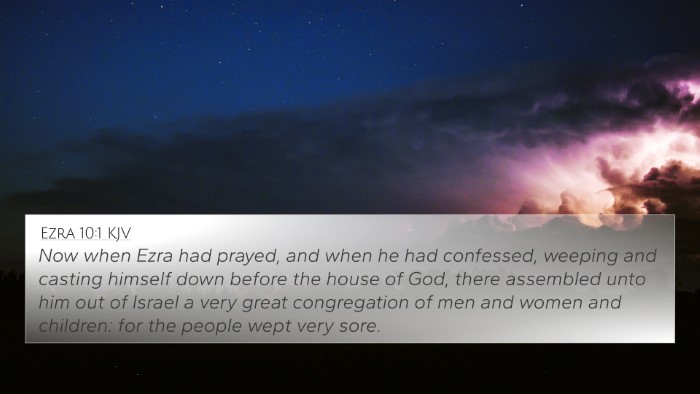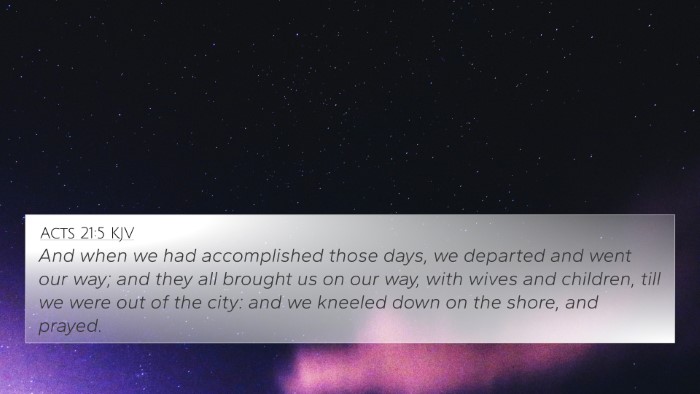Understanding 2 Chronicles 20:13
In 2 Chronicles 20:13, we find a profound moment where the people of Judah, facing a seemingly insurmountable threat, collectively seek guidance and help from the Lord. This verse highlights their vulnerability and dependence on God in times of crisis, emphasizing a critical theme throughout the Bible: reliance on divine strength in moments of human weakness.
Context of 2 Chronicles 20
This chapter documents King Jehoshaphat's response to the alarming news of a large army advancing against Judah. The king's immediate action is prayer, demonstrating a remarkable model of faith and leadership. Gathered before the Lord, all of Judah, including their families and children, stood united in prayer, symbolizing communal reliance on God.
Verse Meaning Breakdown
- Corporate Prayer: The verse indicates that the entire nation was involved in seeking the Lord's help, reinforcing the importance of community in spiritual matters.
- Vulnerability before God: There is an acknowledgment of their helplessness without divine intervention, which is foundational in their appeal.
- Expectation of Divine Aid: The gathering suggests a strong belief that God would respond to their cries for help.
Commentary Insights
Albert Barnes: Barnes emphasizes the significance of the people's recognition of their dire situation. He highlights their collective approach to God, noting that such unity in prayer invites divine assistance.
Matthew Henry: Henry elaborates on the need for dependence upon God, pointing out that in crucial times, believers should come together, as the Israelites did, reflecting a deep need for unity and faith. He remarks on the humility shown by the people, which is integral for receiving God’s aid.
Adam Clarke: Clarke draws attention to the innocence and sincerity of their prayer, suggesting that their desperation brought them together and that God's deliverance is often a communal act that involves more than just individual pleas.
Related Bible Verse Cross-References
- Psalm 34:17: “The righteous cry, and the Lord hears, and delivers them out of all their troubles.” This verse emphasizes God’s readiness to respond to the cries of His people.
- 2 Chronicles 7:14: “If my people, who are called by my name, will humble themselves and pray…” demonstrates the condition of humility before God for receiving His response.
- Isaiah 41:10: “Fear not, for I am with you; be not dismayed, for I am your God…” assures believers of God’s constant presence and support during tumultuous times.
- Philippians 4:6-7: Encourages believers not to be anxious but to bring everything to God in prayer, promising peace in return.
- Matthew 18:19-20: “Where two or three gather in my name, there am I with them,” affirms the power of collective prayer.
- James 5:16: “The prayer of a righteous person is powerful and effective,” indicating the importance of prayer within the community of faith.
- Nehemiah 1:4: Nehemiah’s prayer and mourning for Jerusalem reflect a personal yet communal sense of grief and reliance on God for restoration.
Conclusion and Thematic Connections
2 Chronicles 20:13 serves as a reminder of the need for reliance on divine wisdom and assistance. The powerful theme of communal prayer and unity in faith resonates throughout Scripture, pointing to inter-Biblical dialogues that affirm God’s unchanging nature and His willingness to assist His people in times of trouble.
As one engages in comparative Bible verse analysis, connections between this verse and others solidify the overarching biblical narrative of dependence on the divine. The thematic connections between verses highlight the importance of cross-referencing Biblical texts to enrich understanding and provide a more comprehensive view of God's relational approach to His people.
Tools for Bible Cross-Referencing
To deepen one's study of the connections in scripture, several resources can be employed:
- Bible concordance for finding specific terms and themes
- Bible cross-reference guide to explore scripture links
- Comprehensive Bible cross-reference materials to facilitate detailed studies
- Cross-reference Bible study methods for structured exploration of themes
- Bible reference resources for historical context and interpretation
